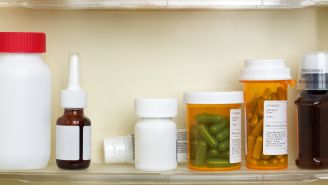It's hard to watch a loved one struggle with major depression, and even tougher when your attempts to help are pushed away. Unfortunately, people with depression often pull away from friends and family, isolating or withdrawing due to depression symptoms. Don't give up. Your loved one needs you most before treatment starts.
Jon Allen, PhD, senior staff psychologist at the Menninger Clinic in Houston, recalls, "I once said in a patient group, 'It's difficult but not impossible to recover from depression.' And a patient said, 'I can tell you one thing, Doc: It was impossible to recover by myself.'"
Before depression treatment
The first step to helping your loved one with depression is making that initial connection. Shoshana Bennett, PhD, a clinical psychologist, suggests broaching the subject of depression symptoms this way: "I notice you haven't really been yourself lately. I care about you, and I want to know if I can be of help. What's going on?"
The individual might know something is wrong but be ashamed about it, Dr. Bennett says, "or the person might be in denial." In either case, your loved one might not believe things will get better. You might need to prod them to seek professional diagnosis and treatment for depression. Offer specific types of help, such as getting the name of a therapist, making a healthcare provider or therapy appointment or driving your loved one to an office visit.
"Don't just bring it up once," Bennett says. "Keep checking in about how it's going. Typically, the individual will be very thankful that you care enough to do this, even if he or she doesn't show it at first."
During depression treatment and recovery
Once your loved one starts getting professional depression help, he or she still needs your support. To discourage social isolation and feelings of loneliness or hopelessness, suggest activities you can do together, such as sharing a meal, driving to the store or taking a short walk.
Also, let your loved one help you. Bennett suggests that asking the person with depression to help with a household chore, such as setting the table, drying the dishes or weeding the garden. This helps you as a depression caregiver and benefits the person with depression. "Self-worth plummets when someone is depressed," Bennett says. Feeling like the one who always needs help reinforces a negative self-image. Being the helper gives your loved one a boost of self-esteem.
Also, avoid using the J word—"just"—which can minimize what your loved one with depression is going through. Don't tell the person to "just think positively," "just quit moping," or "just go out and have some fun," Dr. Allen says. "The J word reflects wishful thinking." It also implies there's a simple solution to major depression when, in fact, there's not.
Overcoming depression is never easy, but it can be a lot less daunting with your loving support.






